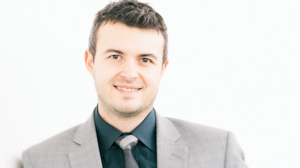

Although Dr. George Bragues’ new book is principally about capitalism, the far-reaching work found Dr. Bragues exploring a variety of elements of the modern human experience from a pre-modern philosophical standpoint.
In Cooperation and Excellence: A Premodern Case for Capitalism, University of Guelph-Humber Assistant Vice-Provost and Program Head of Business Dr. Bragues makes a moral argument in favour of capitalism using arguments drawn from the pre-modern tradition of Western philosophy.
In pursuing that moral defence, Dr. Bragues found a boundless number of topics were relevant.
“This book touches on society, co-operation, how we should organize our economic lives, religion, justice and individual happiness,” Dr. Bragues said. “To that extent, it’s fairly down to earth and comprehensive.
“I’m hitting areas of social life that people can relate to.”
When capitalism is morally defended typically, it’s based on concepts from modern philosophers such as Immanuel Kant, John Stuart Mill, Thomas Hobbes or John Locke, with ideas focusing on rights, freedom, utility or consent to a social contract.
Instead, Dr. Bragues went a different direction and mounted a moral defence of capitalism – defined here as an economic order based on private property and freedom of contracting – based on the skeptical outlook of ancient Roman thinker Cicero.
That meant exploring ideas around how concern for community, social co-operation and pursuing an objective good could be values that provide a moral backbone for capitalism.
“I’m using an ancient framework to analyze a problem of modern existence,” Dr. Bragues explained.
“Over the past century, there have been trends in philosophy and general intellectual life that have challenged the idea that we can arrive at any notion of truth or objectivity. When that’s going on in the culture and people are making the case for capitalism with philosophic ideas that imagine that human reason can establish truth, you’re not going to go anywhere.
“You need some other approach. That’s where the ancient view comes in.”
Chapters in Dr. Bragues’ book include: “Capitalism Cannot Be Secular”; “How a Redistributive State Jeopardizes Social Co-operation”; and “Pursuing Human Excellence Under Capitalism.”
For UofGH students interested in philosophical questions such as these, Dr. Bragues has also explored ideas about politics, religion, money and happiness as part of the Agora Fellowship, a program that gathers students from all programs for eight regular discussion sessions and a field trip. This year’s group is studying the topic of “God and Politics.”
Dr. Bragues published his first book, Money, Markets and Democracy: Politically Skewed Financial Markets and How to Fix Them roughly a year before this one. Though he says that had more to do with the timing of publication, Dr. Bragues still took an appropriately efficient approach for an expert in Business, writing during his evenings and vacations.
“I tried to make it like an assembly-line process,” Dr. Bragues joked.







